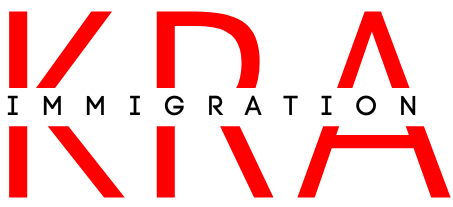The Impact of Recent Policy Changes on Immigration to Canada in 2024
In 2024, Canada's immigration landscape has seen significant policy shifts that are shaping the future of those looking to make the country their home. As one of the world's most welcoming destinations for immigrants, Canada's policy adjustments have always drawn global attention. With its robust economy, high quality of life, and diverse culture, Canada remains a beacon of hope for millions. But recent changes in immigration policy—whether you’re an aspirant or a critic—are causing ripples that everyone is talking about. So, what’s going on with Canadian immigration this year, and how do the latest policies impact the process of moving to the Great White North?
The Growing Demand for Skilled Workers
One of the biggest changes in Canadian immigration policy in 2024 is a stronger focus on attracting skilled workers. Canada, like many other countries, is experiencing labor shortages in key sectors such as healthcare, technology, and trades. In response, the government has expanded its focus on the Express Entry system, making it easier for skilled professionals to immigrate.
The Express Entry system now favors applicants with expertise in high-demand fields, such as IT specialists, healthcare professionals, and engineers. This policy shift is designed to address the pressing need for labor, especially in the wake of the pandemic, which exacerbated these shortages. While some may see this as a positive move that will benefit Canada’s economy, it has sparked a debate about how this shift affects other prospective immigrants, particularly those from lower-skilled backgrounds who may now find it harder to qualify.
Changes to Family Reunification
Another area of Canadian immigration that has seen recent updates is family reunification. One of the most emotional and controversial aspects of immigration is the ability to bring family members over. In 2024, the Canadian government introduced policies aimed at expediting the process for reuniting families, responding to criticism over previous long delays.
The Parent and Grandparent Sponsorship Program, long plagued by quotas and lotteries, has been revamped to allow for faster processing times. The goal is to reduce the waiting time for immigrants who want to reunite with their parents or grandparents. For many families, this is a dream come true—imagine finally being able to celebrate holidays with your loved ones after years of separation! However, critics point out that this move could strain social services, as elderly immigrants may increase demands on healthcare and pension systems.
A New Focus on International Students
International students have always been a key part of Canada's immigration strategy, and in 2024, new policies have made their path to permanent residency (PR) even smoother. The Post-Graduation Work Permit Program (PGWP) has been expanded, giving graduates more time to find work and gain Canadian experience, a critical factor in securing PR status. Additionally, students pursuing degrees in sectors facing critical shortages are being prioritized for fast-track immigration pathways.
For many, this makes studying in Canada more appealing than ever. Why wouldn’t it? Get a world-class education, work in one of the most developed countries, and gain permanent residency all at once—it sounds like a win-win. But, with the increased competition among international students for jobs, some fear that domestic graduates may be edged out of the job market, adding a layer of complexity to an already competitive landscape.
Refugees and Asylum Seekers
Canada’s reputation as a safe haven for refugees remains strong in 2024, with the government doubling down on its commitment to provide shelter to those fleeing conflict zones and persecution. However, recent policy adjustments have sparked debate. The government has implemented stricter vetting processes, aiming to balance compassion with security concerns. Critics argue that this could slow down the intake process and make it harder for genuine refugees to find safety in Canada.
Despite these hurdles, Canada continues to welcome tens of thousands of refugees annually. The country's refugee resettlement program remains one of the most robust in the world, with a focus on providing integration services such as language training, employment counseling, and housing support. Yet, the question remains: can Canada maintain its humanitarian goals while managing increasing global demand?
Conclusion: A Delicate Balance
As Canada continues to evolve its immigration policies in 2024, the impact is being felt by millions of people worldwide. Whether through a focus on skilled workers, faster family reunification, better opportunities for international students, or a commitment to refugees, the changes are reshaping the very fabric of the country.
However, like any policy shift, these changes come with trade-offs. Balancing economic needs, humanitarian goals, and social stability is a delicate act, and Canada’s approach to immigration will continue to be a hot topic. For now, the door to Canada remains open—but navigating the path is more complex than ever.



